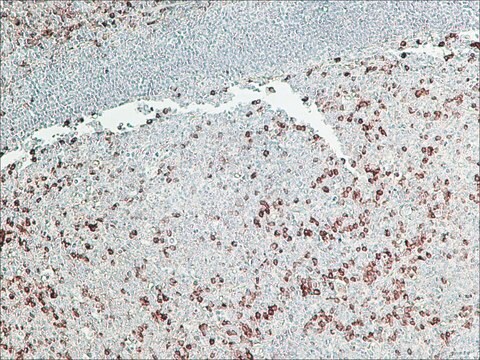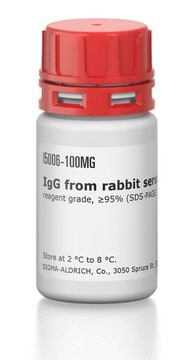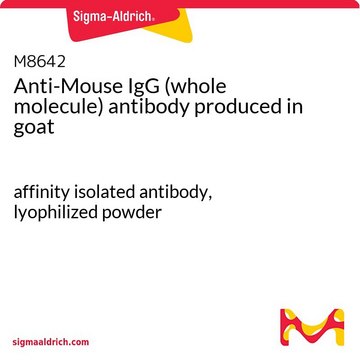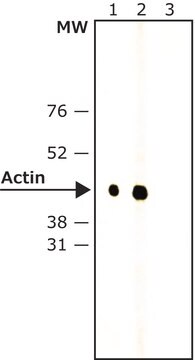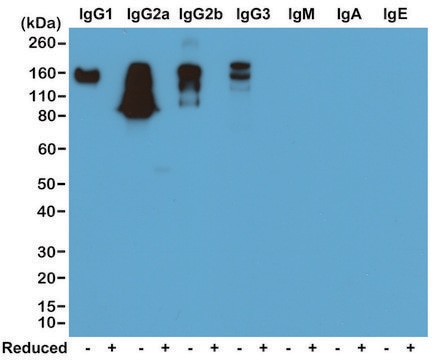B5283
Anti-Rabbit IgG (γ-chain specific)−Biotin antibody, Mouse monoclonal
clone RG-96, purified from hybridoma cell culture
Sinónimos:
Monoclonal Anti-Rabbit IgG (γ-chain specific)
About This Item
Productos recomendados
origen biológico
mouse
conjugado
biotin conjugate
forma del anticuerpo
purified immunoglobulin
tipo de anticuerpo
secondary antibodies
clon
RG-96, monoclonal
Formulario
buffered aqueous solution
reactividad de especies
rabbit
no debe reaccionar con
goat, feline, pig, guinea pig, rat, bovine, canine, human, horse, sheep, chicken
técnicas
direct ELISA: 1:150,000
immunohistochemistry (formalin-fixed, paraffin-embedded sections): 1:1,000
western blot (chemiluminescent): 1:200,000-1:400,000
isotipo
IgG1
Condiciones de envío
dry ice
temp. de almacenamiento
−20°C
modificación del objetivo postraduccional
unmodified
¿Está buscando productos similares? Visita Guía de comparación de productos
Descripción general
Aplicación
Anti-Rabbit IgG (γ-chain specific)-Biotin antibody, Mouse monoclonal has been used in β-Catenin enzyme immunoassay. It has also been used in immunohistochemistry for examining histology of mammary glands.
Acciones bioquímicas o fisiológicas
Forma física
Cláusula de descargo de responsabilidad
¿No encuentra el producto adecuado?
Pruebe nuestro Herramienta de selección de productos.
Código de clase de almacenamiento
10 - Combustible liquids
Clase de riesgo para el agua (WGK)
nwg
Punto de inflamabilidad (°F)
Not applicable
Punto de inflamabilidad (°C)
Not applicable
Elija entre una de las versiones más recientes:
¿Ya tiene este producto?
Encuentre la documentación para los productos que ha comprado recientemente en la Biblioteca de documentos.
Nuestro equipo de científicos tiene experiencia en todas las áreas de investigación: Ciencias de la vida, Ciencia de los materiales, Síntesis química, Cromatografía, Analítica y muchas otras.
Póngase en contacto con el Servicio técnico


